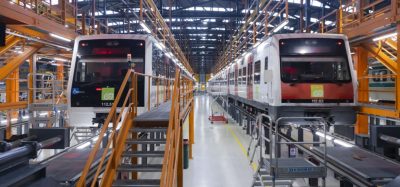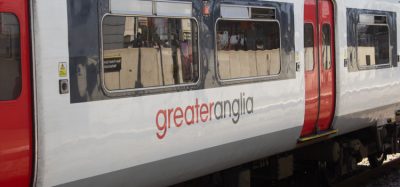Investing in rail infrastructure to achieve Austria’s climate goals
Posted: 8 April 2021 | Leonore Gewessler | No comments yet
Leonore Gewessler, Austria’s Federal Minister for Climate Action, Environment, Energy, Mobility, Innovation and Technology, highlights the importance of rail in driving Austria’s commitment to becoming climate-neutral.
Under the European Green Deal, Europe is set to be climate-neutral by 2050; Austria wants to achieve this as early as 2040. The Austrian Federal Railways (ÖBB) is already aiming to be climate neutral by 2030. The comparison shows: in Austria, a car trip causes 27 times more emissions than a journey by rail. For trucks, the ratio is 40:1 and, for air traffic, 51:1.
On a global scale, Austria is in the top 10 when it comes to train users. The modernisation and expansion of rail infrastructure has been on a constant high level for many years in order to make it even more potent. For the current investment period (2021-2026), a total of €17.5 billion is budgeted. This is the largest annual investment in rail infrastructure that Austria has ever seen. ÖBB will become even more attractive for commuters and travellers, and even more climate friendly, by expanding and electrifying rail routes, modernising stations and improving safety technology and traffic control systems.
“Supply creates its own demand” – a motto that is painfully true for roads, it is definitely desired when it comes to shifting cars and trucks to public transport. We seek to make travelling all over Austria well-coordinated, time-efficient and comfortable. The reliability of services and seamless connections to other publicly accessible means of transport – such as buses, car-sharing or demand responsive transport – makes riding the train more attractive, and therefore increases demand and gives public transport a competitive advantage over the car in more and more cases. Rolling stock that is high quality and adheres to strict quality obligations ensure overall services that are punctual and appealing.
To achieve our climate goals, we ultimately must expand our services and networks. We must aim to transfer more freight from road to rail and make public transport more attractive, especially for cross‑border journeys
Besides high-quality infrastructure, comfortable services and reliability, we consider reasonable tariffs that are easy to use as very important. This is why the Federal Ministry for Climate Action is currently putting great effort into the first nationwide flat-rate ticket, the so-called ‘KlimaTicket’. For €1,095 per year, customers will be able to travel all over Austria, including on all local transport services. Our message to all commuters, passengers and travellers is: “When it comes to mobility, make your annual ticket for public transport your fixed costs instead of the car.”
To achieve our climate goals, we ultimately must expand our services and networks. We must aim to transfer more freight from road to rail and make public transport more attractive, especially for cross-border journeys. Therefore, European transport ministers have launched a platform to do exactly that. Experts, the sector and other stakeholders are working hard to improve conditions for cross-border services.
With the Nightjet, Austria is at the centre of the renaissance of sleeper trains in Europe, with Vienna offering the highest number of destinations. Ridiculed by some and regarded as forgotten only a few years ago, there are now increasing requests for comfortable overnight trains as a climate friendly way of travelling instead of flying.
The climate crisis does not stop at national borders. That is why climate action needs to be taken on an international level. We can only tackle it together. Investing in public transport and, in particular, in rail is an essential solution to reduce emissions in traffic and to induce green economic growth.
After completing her bachelor’s degree in Political Science, Leonore Gewessler worked in Brussels as Director of the Green European Foundation. Back in Vienna, she became Executive Director of GLOBAL 2000 in Austria until running for Parliament in the federal election in 2019. Since 7 January 2020, Leonore has been Austria’s Minister for Climate Action, Environment, Energy, Mobility, Innovation and Technology.
Stay Connected with Global Railway Review — Subscribe for Free!
Get exclusive access to the latest rail industry insights from Global Railway Review — all tailored to your interests.
✅ Expert-Led Webinars – Gain insights from global industry leaders
✅ Weekly News & Reports – Rail project updates, thought leadership, and exclusive interviews
✅ Partner Innovations – Discover cutting-edge rail technologies
✅ Print/Digital Magazine – Enjoy two in-depth issues per year, packed with expert content
Choose the updates that matter most to you. Sign up now to stay informed, inspired, and connected — all for free!
Thank you for being part of our community. Let’s keep shaping the future of rail together!







